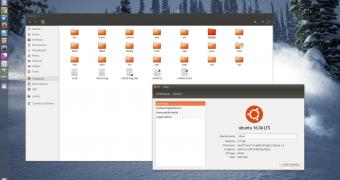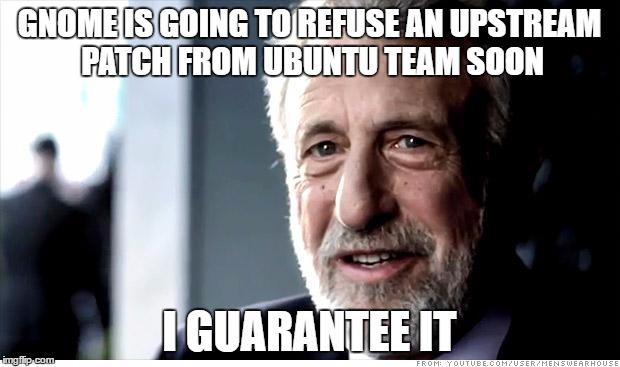Canonical decided to drop Unity in favor of GNOME, which is probably not the best decision. I think that it's probably a mistake, but it was also an unavoidable move for the company.
People have to keep in mind that Ubuntu for desktop was never profitable, and it's easy to see why. There are very few ways to monetize a free operating system. The only way to get some money out of it is to provide specialized support for companies, but that's also not a really profitable avenue.
It's very likely that Canonical is making some money from its other products, especially the ones built for the cloud or IoT devices. It's also true that the regular Ubuntu desktop is pushing the brand in other ways, even if not in a financial sense.
In any case, developing a dedicated desktop environment built from scratch, along with a new display server, must have been draining for Canonical. They might have recouped that money if Ubuntu for Phone took off, but that never happened.
Since Unity 8, the desktop environment for the next generation Ubuntu OSes was a singular solution for phones and PCs, the challenges to make it work from a technical point of view must have been incredible.
Simply put, dropping Unity 8, the Mir display server, and everything around it was a financial decision. The company had to do it, but that doesn't make it less of a mistake. Let me explain why.
Unity was necessary
I don't know how many people remember why Unity existed in the first place. For a long time, Canonical was content to use GNOME as their default desktop, and everything seemed to be just fine. As it turned out, that wasn't exactly the case.
Maybe there were some good reasons that had to do with the direction of the company and its strategy for the future, but I remember when Mark Shuttleworth, the founder of Canonical, explained that they needed to send some patches upstream to GNOME, and they were refused.
Apparently, it wasn't a single occurrence, and perhaps the motives are more complex than this, but the company decided that it was time to make their own thing. And thus Unity was born.
Canonical used to have an Ubuntu edition for notebook, and Unity was first introduced in that version, but it soon landed in the main flavor. Nobody really liked it because there was a lot of resistance to new stuff. In fact, many users dropped Ubuntu just because it was using Unity.
It just worked
After quite a few years of trial and error, the Unity desktop environment became usable. What do I mean by that? Whenever I had to reinstall the operating system, I didn't have to do anything complex to get it to work and look the way I liked it.
I still remember from the days of GNOME 2.x that it took me a lot of time just to bring it up to speed. The launcher was terrible, so I had to install a different one. The third-party launcher was good, but it needed tweaking as well.
On the other hand, Unity was working out of the box. Except for a couple of tweaks, everything was ready to go. Now, I'm not saying that GNOME 3.x is bad. In fact, it's one of the best ones, and it's extremely customizable.
The problem with it is that the vanilla version is pretty much useless. If Canonical ships Ubuntu with regular GNOME desktop and lets me customize it, we're going back more than half a decade.
How long until they don't accept patches?
Canonical's decision to go back to GNOME has been received with open arms, at least apparently. That would mean that some developers from the Ubuntu team would more or less work to improve GNOME and the Wayland display server, even if it's for their own benefit.
Somewhere along the line, the Ubuntu developers are going to need some sort of functionality for their OS, which is not available in GNOME, and they are going to send a patch upstream. It's going to get rejected, and we're back to square one.
After Canonical made Unity, a lot of people started to say that they should work with GNOME and not make a competing desktop environment, but that's a really stupid idea.
The entire Linux environment is built around the idea of people making what they need for what they need, with no one being forced or pushed to work on solutions they don't believe in. You think you can make a better desktop environment than everyone else's? Go right ahead.
It's not a massive block of developers working on a single environment. It's not Windows. It's a group of people constantly improving and innovating, making the Linux platform strong with diversity. You can't have your cake and eat it too.
I will miss Unity. I will miss the fact that I don't need to do anything else after I install Ubuntu. I will miss the fact that I have a proper desktop to click on. I will miss the fact that I don't have to install a ton of extensions to have even the most basic functionality available. And, most of all, I will miss the competition between Unity and all the rest.

 14 DAY TRIAL //
14 DAY TRIAL // 

